This article was co-authored by Ryan Glynn, CPA. Ryan Glynn is a Plant Specialist, Interiorscaper, and the Founder of Chicago Plants, LLC. He specializes in houseplant care, interior plant-scaping, and gardening. Ryan and Chicago Plants have been featured in several media outlets such as TimeOut Magazine and the Chicago Tribune. Ryan holds a BBA and Master’s degree in Accounting from The University of Wisconsin-Madison.
This article has been viewed 167,878 times.
Rubber plants are a popular indoor house plant. They’re typically medium-sized but, if given time and space to grow, can become the size of a small tree. Rubber plants typically do not need much in the way of pruning. Be sure to remove dead and dying leaves, and prune your rubber plant so it grows into the shape you’d like it to have. Before you start pruning, consider if you’d like your rubber plant to have a slim, vertical look or a lower, bushier appearance.
Steps
Pruning Your Rubber Plant
-
1Remove dead leaves and branches at any time of year. As with any indoor plant, remove any leaves and branches from your rubber plant that appear to be dead or dying. This will improve the overall appearance of the rubber plant, and keep the plant in good health. You can remove dead leaves in any season using your fingers.[1]
- You may need to use a pair of pruning shears to snip off dead branches.
- Dying leaves will be yellow in color, and may appear saggy or wilted. Dead leaves will be brown, and often shrunken and black.
-
2Do any major pruning in late spring or early summer. Rubber plants are generally hearty and will probably not suffer ill effects if you prune them in a different season. However, for the sake of the plant’s health, do most of the pruning around early summer. Major pruning includes any pruning that goes beyond removing already-dead leaves and branches.[2]
- If you need to prune a rubber plant in winter or fall, restrict yourself to making minor pruning cuts.
Advertisement -
3Wear gloves when pruning. The sap of the rubber plant is sticky, and will start to flow from the cuts you make when pruning the branches. To prevent the sticky sap from getting onto your fingers, wear a pair of gloves while pruning.[3]
- Canvas work gloves would suffice, as would rubber dishwashing gloves.
-
4Cut the rubber plant branches just above the nodes. Nodes are the locations where a smaller stem branches out from the side of a larger main stem. So, if you’re pruning a main stem, make the cut just above where a smaller stem branches out.[4]
- This way, you can avoid damaging the small leaf-bearing stems.
-
5Prune the rubber plant with a sharp pair of pruning shears. These will easily snip through the rubber plant’s branches, and prevent the stems from ripping or tearing.[5] If you have a young rubber plant with thin stems, you could also trim it using a pair of sharp household scissors. In a pinch, you can use a sharp kitchen knife to prune the plant.
- Unlike other types of plants (like roses) whose branches need to be pruned at an angle, you can cut rubber plant branches straight across.
-
6Don’t over-prune the rubber plant. If you prune away too many of the rubber plant’s leaves and branches, it won’t be able to photosynthesize and may die. So, make sure that you always leave at least 2-3 leaves behind. Also keep in mind that it’s easier for the plant to regrow leaves than to regrow branches.[6]
- Avoid removing more than 5 or 6 living branches in a single pruning session.
- If you have a large rubber plant, you may need to leave as many as 6-7 leaves behind after a thorough pruning.
-
7Repot your rubber plant to allow its size to increase. If you’d like to give your rubber plant’s roots more room to expand, repot it in a larger pot. Each time you repot your rubber plant, move it into a pot that’s only about 1 inch (2.5 cm) larger than the previous pot. Also remember to always plant your rubber plant in a pot with holes in the bottom for drainage.[7]
- Keep in mind that, once its roots have grown, the rubber plant will start growing taller as well.
-
8Propagate your rubber plants with cuttings. If you’d like to start a second rubber plant in a separate pot—or if a friend or family member wants to start a rubber plant of their own—you can do so with a cutting. Snip off a generous cutting, like a large, healthy leaf or a medium branch. Let the wet sap dry, and insert the sappy end of the cutting about 2 inches (5.1 cm) deep in soil.[8]
- Help the cutting take root by placing a warm heating pad under the pot for the first week.
Shaping Your Rubber Plant
-
1Decide on a shape for your rubber plant. Rubber plants can have 1 of 2 shapes: tall and thin, or short and bushy. Based on the space in which you’re keeping the plant, and your own personal taste, choose which shape you’d like the plant to have.[9]
- For example, if you have the rubber plant on a shelf without much room to grow upwards, you may want the plant to develop a short, round shape.
- Or, if you have the plant in a large room with high ceilings, the plant may look better with a tall, slender shape.
-
2Trim unruly or unsightly branches to keep the plant looking tidy. Since rubber plants are kept indoors, you’ll want the plant to look presentable. If any branches are growing in a strange direction or at a very rapid pace, prune them to enhance the overall appearance of the rubber plant.[10]
- You can also prune branches or leaves to keep the rubber plant from looking too dense or cluttered, according to your personal preference.
- Always discard the trimmings into a trash can.
-
3Cut the top off of your plant when it reaches the desired height. Once your rubber plant has reached a height that you’d like to keep it at, prune the top leaves from the plant.[11] This will prevent the rubber plant from putting out any more vertical chutes, and encourage it to grow more horizontally. So, if you’d like a low, bushy rubber plant, try cutting the top off when it’s about 4–5 feet (1.2–1.5 m).[12]
- Be aware that if you do not cut the top leaf or leaves off of your rubber plant, it will continue to grow. Rubber plants can grow up to 10 feet (3.0 m).[13]
-
4Prune branches often if you’d like a bushier plant. Whenever you prune a branch of the rubber plant, the plant will produce 2 or more new branches from the stump.[14] This makes it easy to make your rubber plant thick and bushy. Keep pruning branches on the side of the plant until it’s become as thick and bushy as you’d like.[15]
- But, if you want your rubber plant to remain tall and thin, only prune branches when strictly necessary.
Expert Q&A
-
QuestionCan I cut the top off my rubber plant?
 Ryan Glynn, CPARyan Glynn is a Plant Specialist, Interiorscaper, and the Founder of Chicago Plants, LLC. He specializes in houseplant care, interior plant-scaping, and gardening. Ryan and Chicago Plants have been featured in several media outlets such as TimeOut Magazine and the Chicago Tribune. Ryan holds a BBA and Master’s degree in Accounting from The University of Wisconsin-Madison.
Ryan Glynn, CPARyan Glynn is a Plant Specialist, Interiorscaper, and the Founder of Chicago Plants, LLC. He specializes in houseplant care, interior plant-scaping, and gardening. Ryan and Chicago Plants have been featured in several media outlets such as TimeOut Magazine and the Chicago Tribune. Ryan holds a BBA and Master’s degree in Accounting from The University of Wisconsin-Madison.
Plant Specialist & Interiorscaper Sure, but know that this isn't the kind of plant that you necessarily need to prune. It's a ficus plant and it can kind of just grow wild and be quite healthy like that. Pruning is usually more for aesthetic purposes in this case.
Sure, but know that this isn't the kind of plant that you necessarily need to prune. It's a ficus plant and it can kind of just grow wild and be quite healthy like that. Pruning is usually more for aesthetic purposes in this case. -
QuestionHow do you prune a leggy rubber plant?
 Ryan Glynn, CPARyan Glynn is a Plant Specialist, Interiorscaper, and the Founder of Chicago Plants, LLC. He specializes in houseplant care, interior plant-scaping, and gardening. Ryan and Chicago Plants have been featured in several media outlets such as TimeOut Magazine and the Chicago Tribune. Ryan holds a BBA and Master’s degree in Accounting from The University of Wisconsin-Madison.
Ryan Glynn, CPARyan Glynn is a Plant Specialist, Interiorscaper, and the Founder of Chicago Plants, LLC. He specializes in houseplant care, interior plant-scaping, and gardening. Ryan and Chicago Plants have been featured in several media outlets such as TimeOut Magazine and the Chicago Tribune. Ryan holds a BBA and Master’s degree in Accounting from The University of Wisconsin-Madison.
Plant Specialist & Interiorscaper Usually, people do what we call "topping", where you chop off a healthy branch on the top. As a result, it will branch out, giving the plant the opportunity to shoot out new growth and potentially having two branching directions where previously there was just one.
Usually, people do what we call "topping", where you chop off a healthy branch on the top. As a result, it will branch out, giving the plant the opportunity to shoot out new growth and potentially having two branching directions where previously there was just one. -
QuestionHow do I stop the white sap from dripping now that I have pruned my rubber plant?
 SylghoulsTop AnswererIt should stop dripping on its own eventually, as the latex sap of a rubber plant dries at room temperature. You don't need to do anything additional to stop the natural flow of the sap. If you're having problems with the sap dripping indoors or getting on things it shouldn't, place plastic mats down on the ground around the plant to prevent mess.
SylghoulsTop AnswererIt should stop dripping on its own eventually, as the latex sap of a rubber plant dries at room temperature. You don't need to do anything additional to stop the natural flow of the sap. If you're having problems with the sap dripping indoors or getting on things it shouldn't, place plastic mats down on the ground around the plant to prevent mess.
Things You’ll Need
- Pruning shears
- Gloves
- Kitchen knife (optional)
- Trash can
- Larger pot (optional)
- Cutting (optional)
- Heating pad (optional)
References
- ↑ https://www.apartmenttherapy.com/rubber-plant-our-best-tips-for-growing-and-care-237390
- ↑ https://gardenerdy.com/pruning-rubber-tree-plant
- ↑ https://gardenerdy.com/pruning-rubber-tree-plant
- ↑ https://gardenerdy.com/pruning-rubber-tree-plant
- ↑ http://www.thegardenhelper.com/ficus.html
- ↑ https://www.epicgardening.com/rubber-tree-plant/
- ↑ https://www.apartmenttherapy.com/rubber-plant-our-best-tips-for-growing-and-care-237390
- ↑ https://www.apartmenttherapy.com/rubber-plant-our-best-tips-for-growing-and-care-237390
- ↑ Ryan Glynn, CPA. Plant Specialist & Interiorscaper. Expert Interview. 4 November 2021.
- ↑ https://www.apartmenttherapy.com/rubber-plant-our-best-tips-for-growing-and-care-237390
- ↑ Ryan Glynn, CPA. Plant Specialist & Interiorscaper. Expert Interview. 4 November 2021.
- ↑ https://www.apartmenttherapy.com/rubber-plant-our-best-tips-for-growing-and-care-237390
- ↑ https://www.epicgardening.com/rubber-tree-plant/
- ↑ Ryan Glynn, CPA. Plant Specialist & Interiorscaper. Expert Interview. 4 November 2021.
- ↑ http://www.thegardenhelper.com/ficus.html
- ↑ https://www.apartmenttherapy.com/rubber-plant-our-best-tips-for-growing-and-care-237390
About This Article
To prune a rubber plant, grab a pair of gardening shears and clip off any dead leaves and branches, which will keep your plant in good health. If you need to do some major pruning beyond removing dead material, do it in the late spring or early summer, since pruning live branches out of season can weaken your plant. When pruning, cut just above the nodes, or the places where smaller stems branch out from the side of a larger stem. Make sure to wear gloves, as the sap from rubber plants is very sticky and can be tough to get off your skin and clothes. For more tips, including how to shape your rubber plant by pruning it, read on!
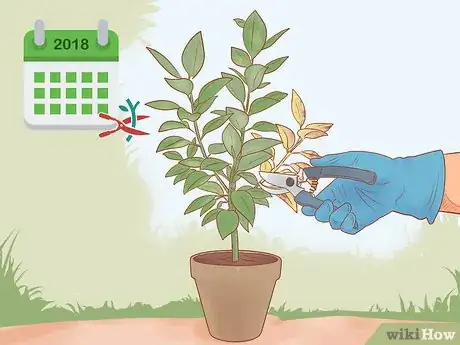

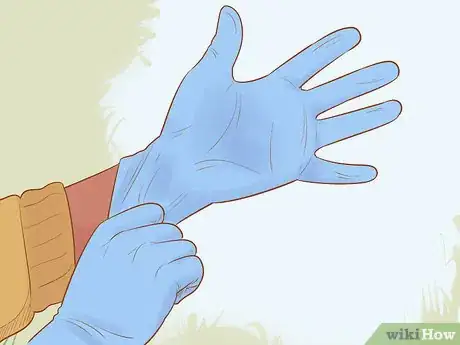


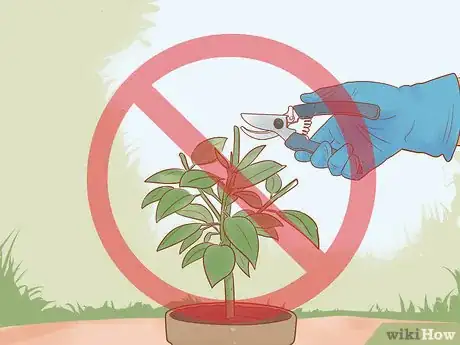


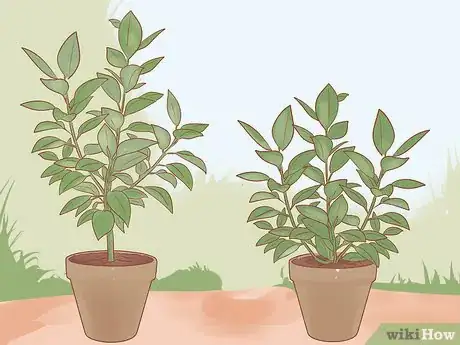




-Step-11.webp)
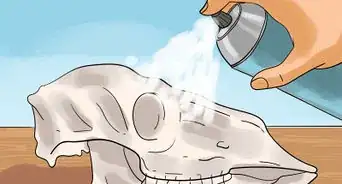
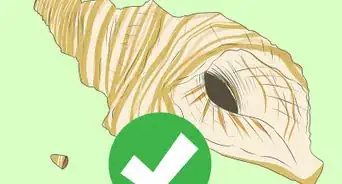
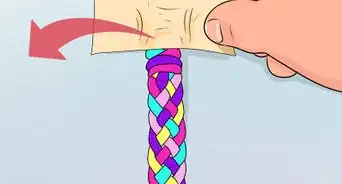
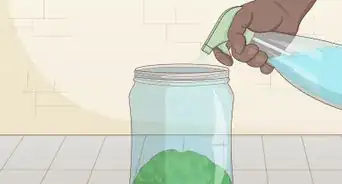
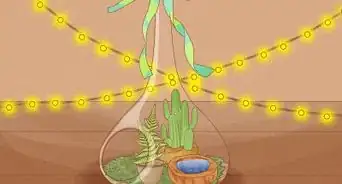








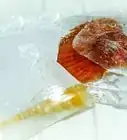
-Step-11.webp)




































